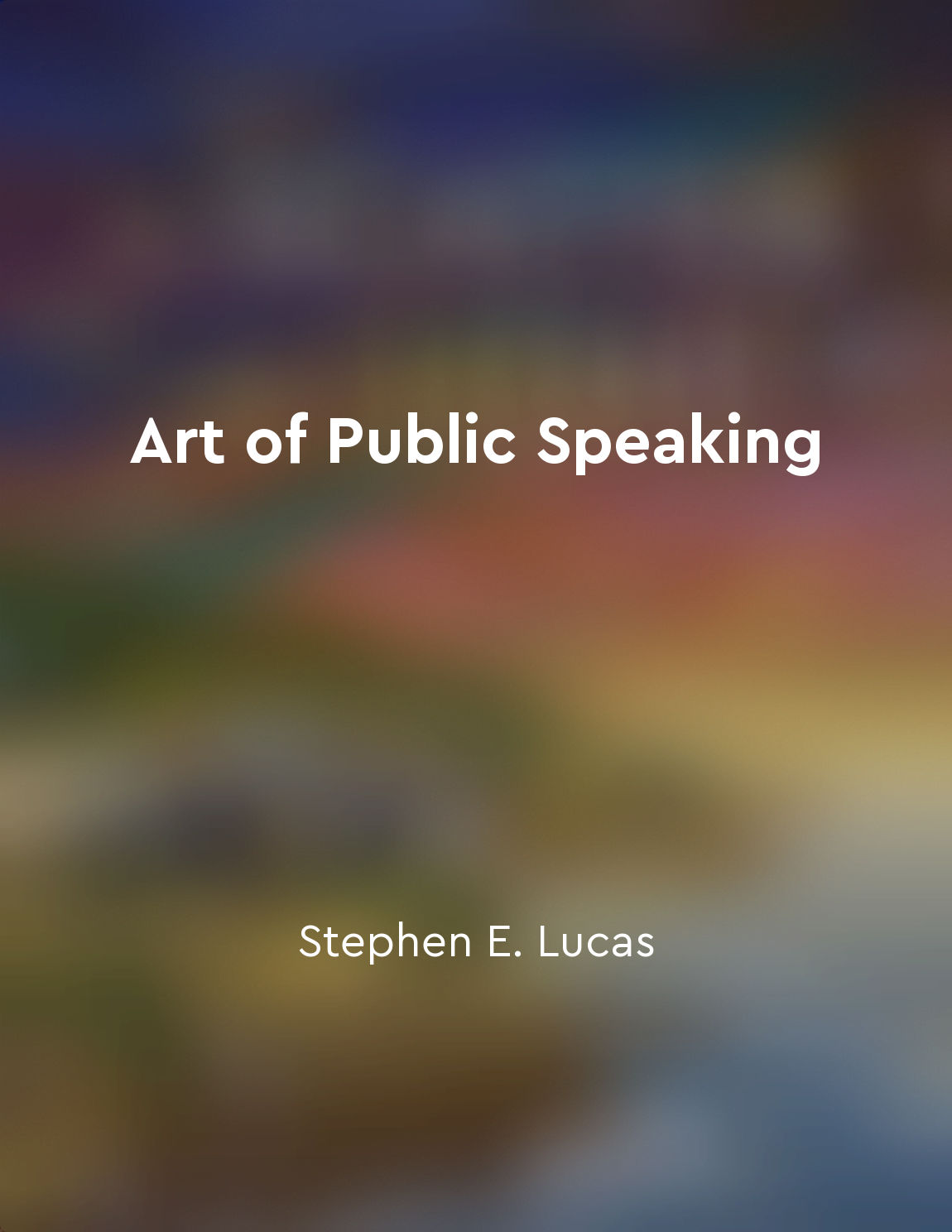Take advantage of pauses for emphasis and reflection from "summary" of Public Speaking by David Zarefsky
Pauses play a crucial role in public speaking, serving as moments of emphasis and reflection. By strategically incorporating pauses into your speech, you can effectively draw attention to key points and allow your audience time to digest important information. Pauses can create a sense of anticipation and build suspense, keeping your listeners engaged and focused on your message. When used thoughtfully, pauses can also help you maintain control over the pace and flow of your speech. They provide you with an opportunity to collect your thoughts, regulate your breathing, and ensure that your delivery is clear and well-paced. Pauses can help you avoid speaking too quickly or rushing through your points, allowing you to communicate with confidence and authority. In addition to their practical benefits, pauses can also add depth and nuance to your speech. They can convey a sense of authenticity and sincerity, allowing you to connect with your audience on a more personal level. Pauses can create moments of reflection, giving your listeners time to process complex ideas and emotionally resonate with your message. By mastering the art of incorporating pauses into your public speaking, you can elevate the impact of your communication and leave a lasting impression on your audience. Remember to be intentional in your use of pauses, allowing them to serve as strategic tools for enhancing the clarity, coherence, and effectiveness of your speech. Embrace the power of pauses as a means of emphasizing key points, maintaining control over your delivery, and fostering a deeper connection with your listeners.Similar Posts

Pay attention to body language
When interacting with others, it is crucial to be mindful of the nonverbal cues they are giving off. Body language can speak vo...
Empathy plays a key role in active listening
Empathy is a fundamental aspect of active listening. It is the ability to understand and share the feelings of another person. ...
Show appreciation for the other person's perspective and opinions
One important aspect of effective communication is demonstrating respect for the viewpoints and opinions of others. This means ...
Use active listening to understand others' perspectives
Active listening is a powerful tool that can help us truly understand others' perspectives. When we engage in active listening,...
The art of public speaking can be learned and mastered
The ability to speak effectively in public is not a mysterious gift bestowed upon a chosen few. It is a skill that can be acqui...

Good listeners ask openended questions
One of the key characteristics of good listeners is their ability to ask open-ended questions. These types of questions encoura...
Active listening is essential for responding to questions and feedback
One important aspect of effective communication is the ability to actively listen to others. This means fully engaging with the...

Use language that is clear and concise
Language that is clear and concise is essential for effective communication. By using simple and straightforward language, spea...
Revision is essential for improvement
Revision is essential for improvement. It is the process of reworking a piece of writing, refining it, clarifying it, making it...
Structure your speech with a clear introduction, body, and conclusion
When preparing a speech, it is essential to structure it in a way that is clear and organized. This involves dividing the speec...

